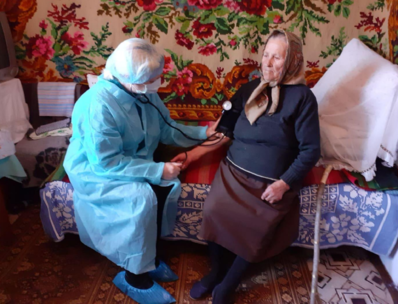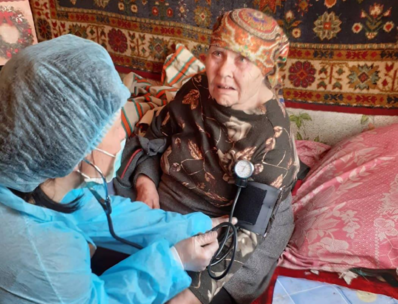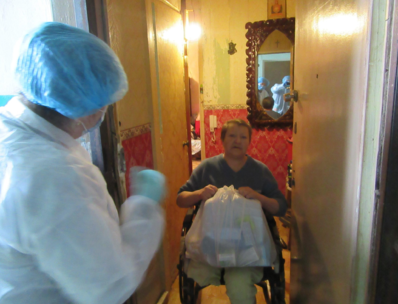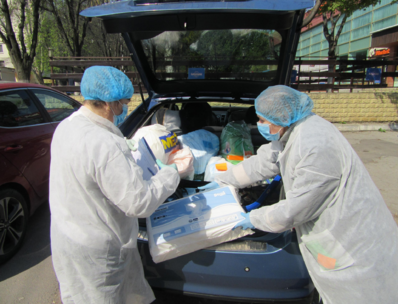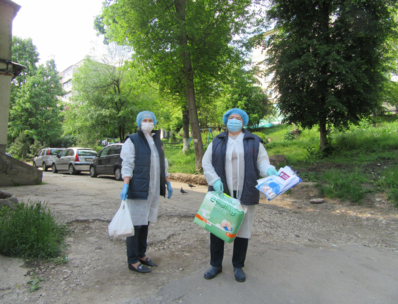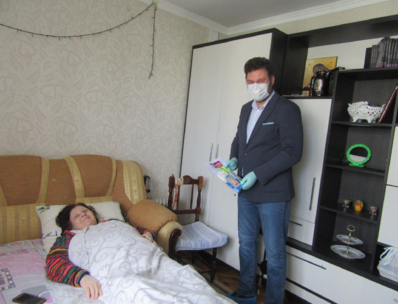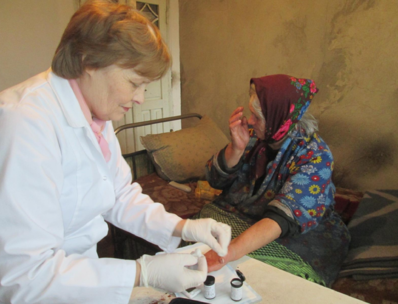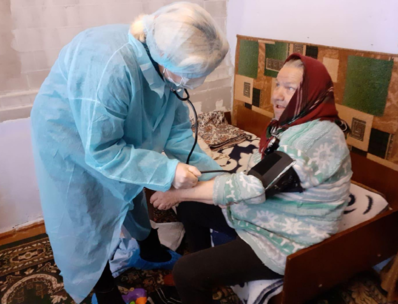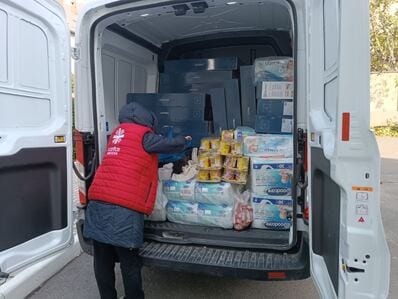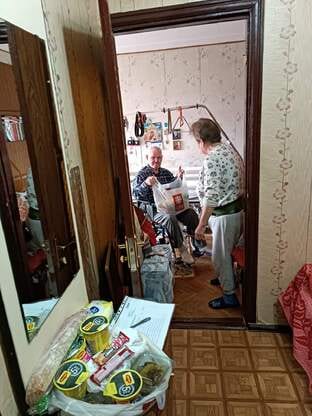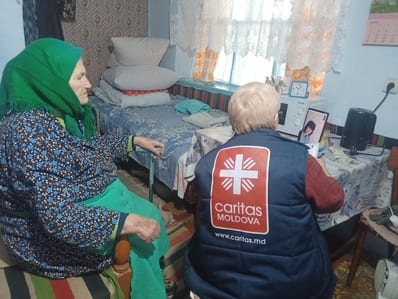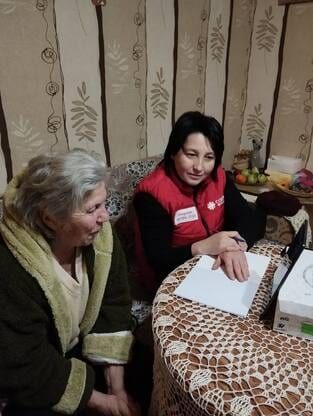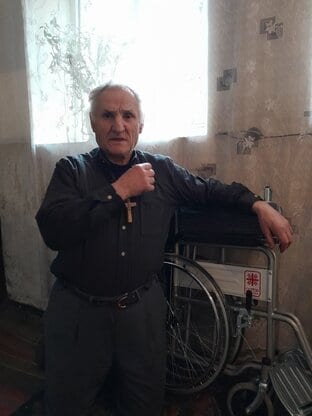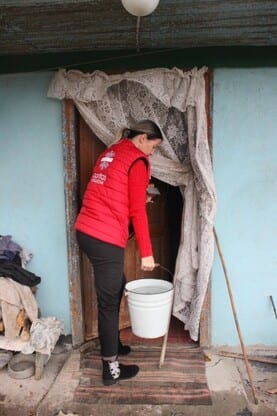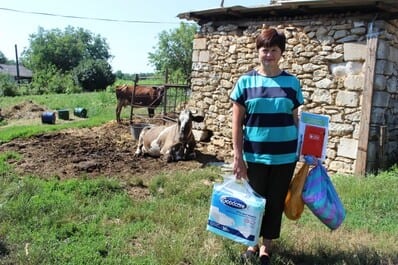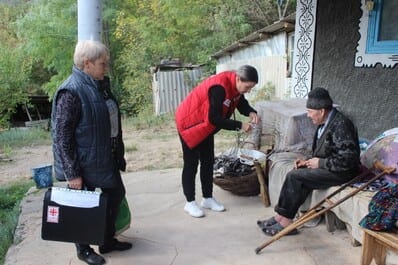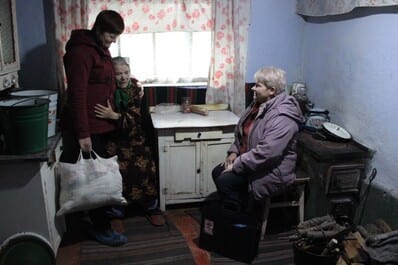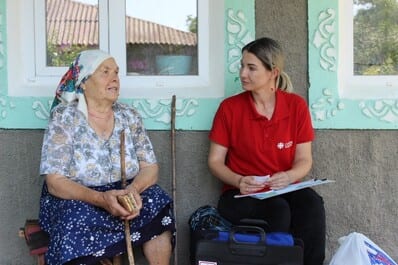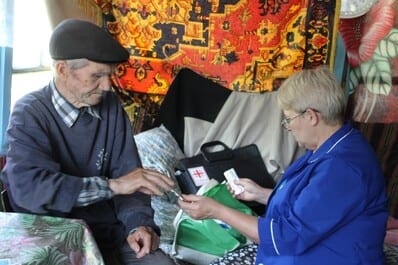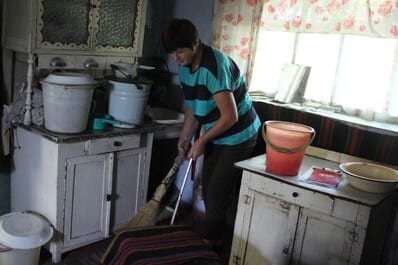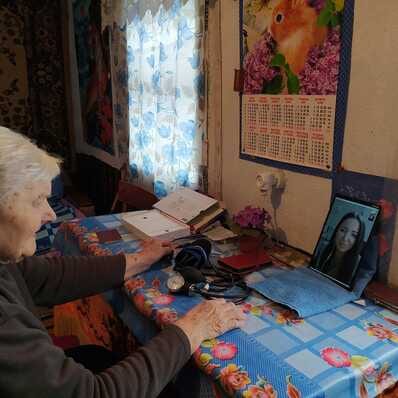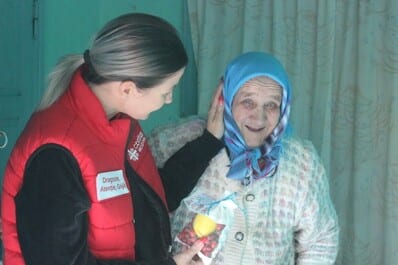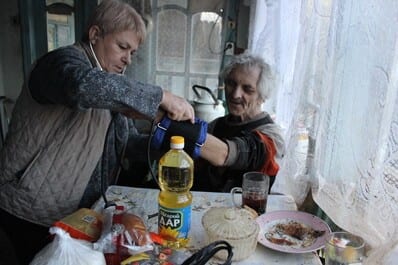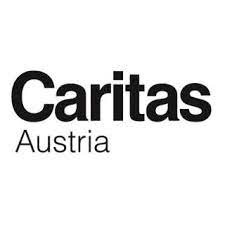Innovation for Health
.jpg)
The project is the joint effort of two Austrian Caritas organisations to contribute to an improved quality of life of vulnerable population groups in need in Armenia, Ukraine and Moldova in light of the Covid-19 pandemic.
The project seeks to:
1. improve the health of vulnerable population groups through the provision of quality integrated care services. This includes the provision of homecare services through trained mobile teams: medical consultations through telemedicine in cooperation with medical centres (UM); the provision of food packages, hygiene items and personal protective equipment to satisfy beneficiaries' basic needs; as well as public health risk communication to raise awareness about Covid-19 related protective measures (AUM).
2. strengthen local health systems by increasing the knowledge of staff, volunteers and other local stakeholders. This includes a series of training sessions tailored to the needs identified; exchange of information, lessons learned and best practices, nation-wide as well as across the region (AUM); roundtable discussions on safeguarding and data protection with local stakeholders (UM); and online exchange between experts on issues such as telemedicine, homecare service delivery, post-Covid-19 rehabilitation and safeguarding as well as protection and gender in health.
Target Groups & Final Beneficiaries
The primary target group: Vulnerable, socially isolated persons in need of home care: elderly, especially elderly women, IDPs, chronically ill people (HIV patients), bedridden persons, people with disabilities, people at the terminal stage of their lives.
Number of individuals: 200 in Moldova (60% women), 90 in Ukraine (60% women), 60 in Armenia (95% women)
The secondary target group: Staff and local stakeholders: home care teams, nurses, social workers, project coordinators, volunteers, staff from networking partners, students.
The project is implemented in 4 regional socio-medical centres: Grigorauca; Stauceni; Rashcov and Tiraspol in Transnistria.
Planned duration from: 01 July 2021 to 31 December 2022
This project is “Funded by the Austrian Federal Ministry of Social Affairs, Health, Care and Consumer Protection“ with the support of project Caritas Österreich and Caritas der Erzdiözese Wien - Hilfe in Not
The Austrian people continue to support Caritas Moldova in home medical care services for more than 10 years. Thus, Caritas Moldova is currently implementing two projects funded by the Austrian Federal Ministry of Social Affairs, Health, Consumer Care and Protection and Caritas Vienna: “Health Innovation” (MoH) and “Assistance) Both projects aim to contribute to the creation of the living quality of over 500 beneficiaries from Chisinau and its suburbs (Stăuceni, Bubuieci and Bic communes); s.Grigorăuca, r-n Sîngerei; s. Stârcea, rn Glodeni; the cities of Tiraspol and Râbnița; Rașcov village, Camenca district.
Within the projects, medical and social care services are provided at home through trained mobile teams, including telemedicine consultations; the provision of food package, hygiene items and personal protective equipment to meet the basic needs of the beneficiaries, as well as the communication of public health risks to increase awareness of the law. participate in various activities and are offered personal hygiene services, communication, physical therapy, creative activities, transporting the patient to the territorial association of family doctors to be at church.
The projects also strengthen local health systems by increasing personal knowledge, volunteers and other local stakeholders. These include a series of training sessions tailored to identified needs, roundtable discussions between experts addressing issues such as the provision of home care services, telemedicine, including post-Covid-19 rehabilitation and protection. In order to ensure greater accessibility of beneficiaries to care services and to implement a transparent mechanism in the management of services, the digitization process has been promoted through the development of a database.

